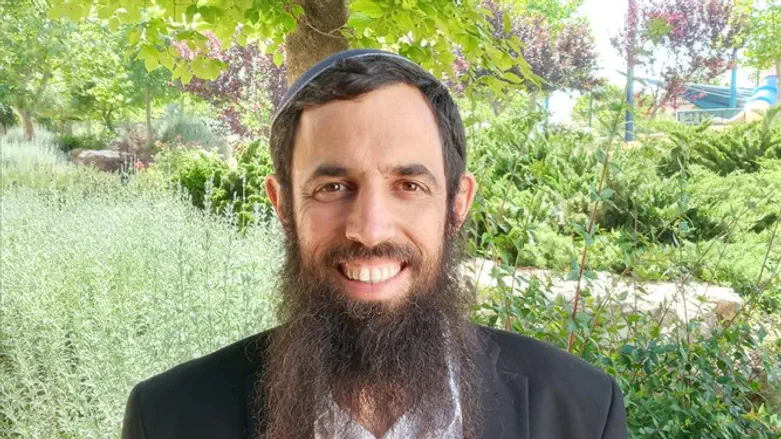
As a practicing rabbi, I often receive questions from parents, and recently I received a letter from a mother who is in real pain, hurting because her children have ceased keeping mitzvot.
"I am the mother of children who left the ways of G-d, some more and some to a lesser extent, this to my great sorrow. I feel guilty and keep blaming myself for the way they turned out. It's eating me up inside, day and night."
"Chazal (our Talmudic Sages) praised the mothers of tzaddikim, righteous men, with compliments such as "lucky is the one who gave birth to him", and had, in contrast, hard words for mothers whose sons left the straight path and committed evil deeds. What should I do, rabbi? How do I get through this?"
I chose my answer carefully so that it would make my point clear:
"I totally understand your feelings. Know that the pain and emotional stress that you feel rise up to the Heavens and make an impression. According to Rabbi Nachman of Breslav (and the Baal Hatanya alludes to this as well) the hindrances and obstacles in serving Hashem and the sorrow accompanying them that man must deal with, are part of our offerings to Him, an interpretation of the verse in Psalms: 'For Your sake we have been killed all the day."
As far as your personal feelings of guilt are concerned, a look at the Tanach will show that many of its great figures failed in educating their children.
Our Patriarchs and Matriarchs, Abraham and Sarah, Yitzchak and Rivka, had sons who went off the right path. Although there is a difference, lehavdil, Jacob also did not reap joy from Shimon and Levi (who were tzaddikim), nor did King David from Absalom, Amnon and Adoniya. King Hezekiah's son Menashe, was an evil doer, and there are more instances. Noah, who preceded them, had a wicked son, and we must not forget that Adam's son, Cain, was the first murderer, so that even his father, the first man created by G-d Himself, did not succeed in educating his son.
And despite the fact that their sons did not follow in their footsteps, we do not find an instance where our righteous forebears blamed themselves for it. That is an important message for us as parents.
If a mother and father neglect their responsibilities as parents, if they do not teach Torah and do not encourage a G-d-fearing atmosphere in their homes and set no limits or goals at home, then sometimes their children leave the fold because of this neglect. Sometimes parents do have a part in the failures of their children. In that case, parents should do teshuva for not educating their children properly.
On the other hand, if parents did try to educate their children as they thought best, investing in what it is proper to invest, but their offspring as adults decided to leave the path of G-d, they must not blame themselves, but accept that adults have free will for good and for bad, and can choose their own way to live. G-d is above us and runs the world, but not always through us.
There is no doubt that our righteous forebears in the Tanach did all they could to educate their children. Therefore, when one of their offspring left the way of life they had been taught, they did not see it as a pedagogical failure of their own, but as an autonomous decision made by that child. They prayed and tried to have influence on him, but did not blame themselves for his choices.
The Holy One, blessed be He, chooses to continue the lives of children who have left the path to Him, trusting in their ability to return. Parents must act that way as well.
If G-d has chosen us to be the parents of this child, it means we are the only ones suitable for this G-dly mission, and we should find joy in our efforts to be parents according to His will. What a child adopts or rejects from his parents' way of life is his decision. The journey is his, the responsibility his alone.
We must differentiate clearly between what is our responsibility as parents, and what an adult child chooses on his own.
Nevertheless, I know, that despite this rationale, the pain continues. It is true that emotions are influenced by intellect, but also from what our eyes observe, and when a parent sees a child dressed immodestly or not keeping Shabbat, his inner Jewish feelings cause him overwhelming grief. He must allow for those feelings, make room for the pain. Only afterwards, can rationality afford some respite and balm for his soul.
The limits of our responsibility are important not only for our mental health, not only because that is the truth of the matter, but also because that allows us to continue to have a relationship with the son, the daughter, who have left the path, believe in them and strengthen them without unnecessary guilt feelings that block the wellsprings of parenthood.
Rabbi Baruch Efrati studied at Merkaz HaRav yeshiva in Jerusalem and serves as a rabbi in Efrat. He is a prolific and much-read writer on Torah issues and heads the "Derech Emunah" (Way of Torah) movement of young Israeli Orthodox rabbis.